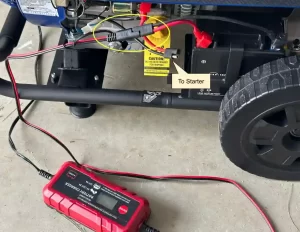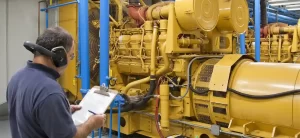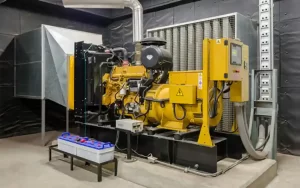Introduction
In today’s world, where power outages can disrupt daily life and business operations, generators have become an essential tool for ensuring a continuous power supply. Whether you’re looking to keep your home running smoothly during a blackout or need a reliable power source for your business, understanding the basics of generators can help you make an informed decision.
What is a Generator?
A generator is a device that converts mechanical energy into electrical energy. This conversion is typically achieved through the use of an internal combustion engine, which drives an alternator to produce electricity. Generators come in various sizes and capacities, from small portable units to large industrial machines capable of powering entire buildings.
Types of Generators
1.Portable Generators: These are small, mobile units that are ideal for temporary power needs. They are commonly used for outdoor events, camping trips, and as backup power for homes.
2.Standby Generators: These are permanently installed units that automatically turn on during a power outage. They are typically used for homes and businesses that require a reliable backup power source.
3.Inverter Generators: Known for their quiet operation and fuel efficiency, inverter generators are ideal for sensitive electronic devices. They produce clean and stable power, making them perfect for camping and recreational use.
4.Industrial Generators: These are large, robust units designed to provide power for industrial applications. They are capable of running for extended periods and can handle heavy loads.
Key Features to Consider
When choosing a generator, there are several key features to consider:
• Power Output: Measured in watts, this indicates the amount of power the generator can produce. It’s important to choose a generator with enough capacity to meet your needs.
• Fuel Type: Generators can run on various fuels, including gasoline, diesel, propane, and natural gas. Each fuel type has its advantages and disadvantages in terms of cost, availability, and storage.
• Run Time: This refers to how long the generator can operate on a full tank of fuel. Longer run times are beneficial for extended power outages.
• Noise Level: Generators can be noisy, so it’s important to consider the noise level, especially if you plan to use it in a residential area.
• Portability: If you need a generator that can be easily moved, look for models with wheels and handles.
Maintenance Tips
Proper maintenance is crucial for ensuring the longevity and reliability of your generator. Here are some tips to keep your generator in top condition:
• Regularly Check Oil Levels: Ensure the generator has enough oil and change it according to the manufacturer’s recommendations.
• Keep it Clean: Remove any dirt, debris, and moisture from the generator to prevent damage and ensure efficient operation.
• Test it Periodically: Run the generator periodically to ensure it is in good working condition and to prevent any issues from arising during an actual power outage.
• Store it Properly: If you are not using the generator for an extended period, store it in a dry, cool place and follow the manufacturer’s storage guidelines.
Conclusion
Generators are invaluable tools that provide peace of mind and security during power outages. By understanding the different types of generators, key features to consider, and proper maintenance practices, you can choose the right generator to meet your needs and ensure it remains reliable for years to come.
Whether you’re preparing for emergencies or need a dependable power source for your business, investing in a quality generator is a smart decision that can keep your world powered and connected.




